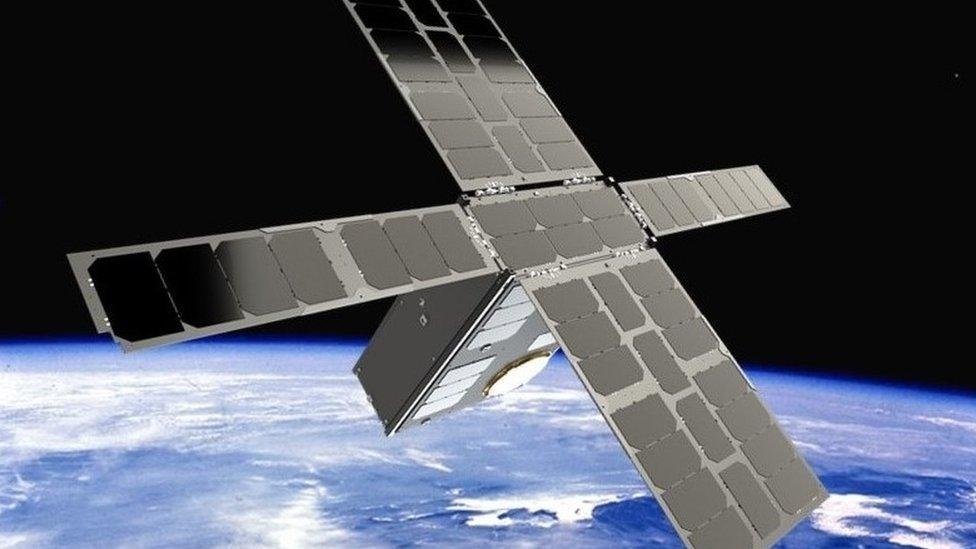Satellite maker Clyde Space lines up 'cold atom' mission
- Published

Clyde Space's 6U CubeSat will be used for the Cold Atom Space Payload (Caspa) mission
Miniature satellite maker Clyde Space has teamed up with a tech conglomerate on a project that aims to create "a new wave" of space applications.
A tiny satellite made by Glasgow-based Clyde will be used for a mission to create "cold atoms" in space.
The 6U CubeSat will carry quantum-based technology developed by sensor specialist Teledyne e2v and the University of Birmingham.
No date has yet been set for the Cold Atom Space Payload (Caspa) mission.
It hopes to replicate lab experiments that have shown cold atoms can be used as "ultra-sensitive sensors" capable of mapping tiny changes in the strength of gravity across the earth's surface.
Clyde and Teledyne e2v said the space mission could pave the way for cold atom instruments to be used in space.
'Pushing the boundaries'
They believe the technology could lead to more accurate monitoring of changes in polar ice mass, ocean currents and sea level and the ability to monitor underground water resources.
It could also be applied to deep space navigation.
The project is funded by Innovate UK and also includes technology from project partners Gooch & Housego, XCAM, Covesion and the University of Southampton.
Clyde Space chief executive Craig Clark, said: "We are always pushing the boundaries of what is possible with small spacecraft, as are Teledyne e2v with quantum technology.
"We are delighted to provide our technical solution in support of Teledyne e2v's vision for the commercialisation of quantum technologies."
Trevor Cross, from Teledyne e2v, said: "Quantum technology is giving us new abilities in a wide range of markets and applications.
"Our partnership with Clyde Space is representative of the collaboration required to commercialise the technology and really maximise the benefits of quantum in industry."